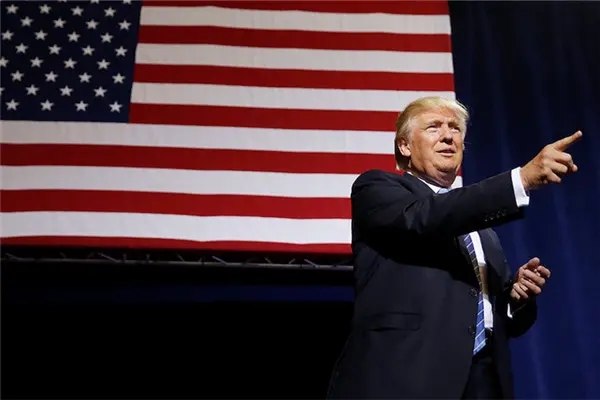U.S. President-elect Donald Trump says he wants to crack down on terrorism but avoid getting involved in messy regime changes. That strategy reflects the feeling among some that Washington has not dealt harshly enough with terrorism, as well as the sentiment that the United States has lost too many American lives overseas.
Trump last month clinched the White House in a victory that shocked the world, proving wrong the predictions of the vast majority of analysts and polls that said he would lose.
The brash billionaire has vowed to shake up U.S. foreign policy, and to bomb the radical terror group Islamic State back to the Stone Age, as the terrorists have carried out attacks in the United States and Europe. But at the same time, Trump wants to avoid messy entanglements, such as regime change. Indeed, the United States paid a heavy price for regime change in Iraq, when U.S. forces toppled strongman Saddam Hussein and ended up getting sucked into a guerrilla war that cost thousands of American lives, while physically and mentally wounding many more.
"Trump's strategy reflects a hybrid blend of two separate frustrations about the ongoing conflict (with IS). First, that the United States hasn't taken the gloves off when it comes to fighting these groups. And second, that we've spent too much blood and treasure policing the Middle East, with little cooperation from allies and continued opposition from Russia and Iran," Dan Mahaffee, an analyst with the Center for the Study of the Presidency and Congress, told Xinhua.
"I think Trump reflects a lot of foreign policy realists' concerns about the impact of regime change on stability-particularly in the Middle East," he said.
Trump has repeatedly vowed to decimate IS forces via bombing, and has heavily criticized U.S. President Barack Obama's bombing campaign as inconsequential. But at the same time, the brash billionaire has failed to outline a plan for battling the radical Islamist ideology that has spurred extremism and violence.
"While bombing can affect the material and organizational side of ISIS, you cannot bomb away the radical ideology that is fueling ISIS, al-Qaeda, other terrorist groups, and unknown or unforeseen future terrorist groups that will be inspired by that perverted version of Islam," Mahaffee said.
"While you can destroy their ability to govern parts of Syria and Iraq and limit their ability to fight there, equally important is the emphasis on countering that ideology, their messaging, their propaganda, and their recruiting of self-radicalized, so-called lone wolf, attackers in the United States, as well as their infiltration of attack cells into European countries," he said.
"That can't come from bombing, but rather through counter-narratives about IS, improved intelligence surveillance both in the physical world and cyberspace, and the coordination of intelligence from abroad with domestic law enforcement," he said.
Indeed, IS has been responsible for a number of attacks on the West, some of which were carried out directly by IS operatives, while others were carried out by those influenced by IS' radical propaganda.
Those include last November's attacks on Paris, in which gunmen stormed a rock concert and other locations and killed more than 130 people. Those also include the attack on a gay nightclub in Orlando, in the U.S. state of Florida, in which an IS-inspired gunman entered the club and killed 49 people.
(APD)
 简体中文
简体中文

